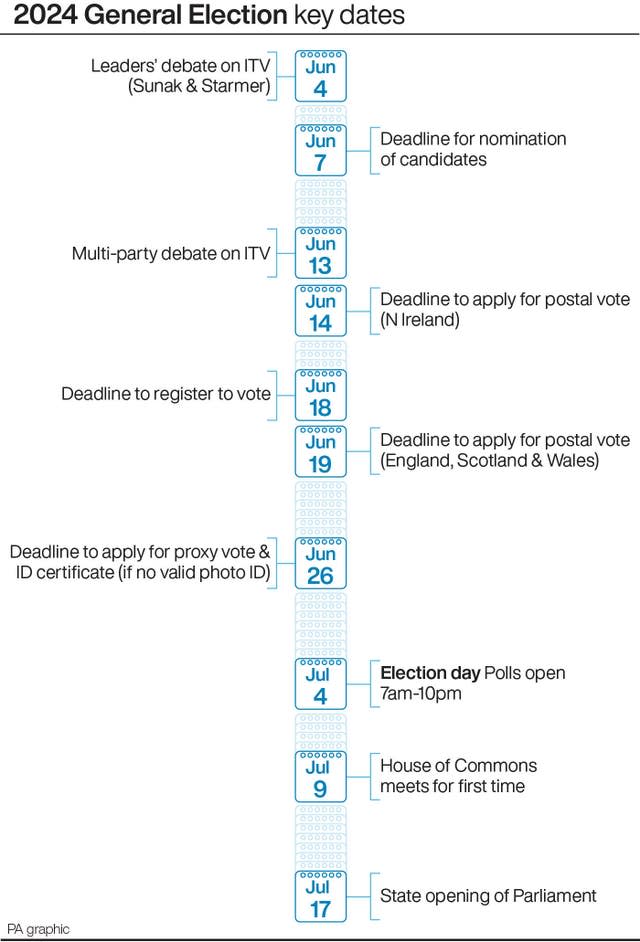Swinney hits out at Tory ‘strategy to undermine Scottish Parliament’
A pledge by the Conservatives to change the Equalities Act is part of a “deliberate strategy to undermine the powers of the Scottish Parliament”, First Minister John Swinney has said.
The SNP leader responded to a Tory election promise to define the protected characteristic of sex as “biological sex”.
Kemi Badenoch, the UK women and equalities minister, also said her party would move to make gender recognition a matter reserved to Westminster while seeking to clarify the Equalities Act.
On Monday, Mr Swinney visited the Graham’s dairy plant in Stirling alongside his candidate Alyn Smith.

Speaking to journalists, he said: “This is just another step in the Conservative attempts to erode the powers of the Scottish Parliament.
“It’s been going on for some time.”
Brexit and the Internal Market Act had weakened Holyrood’s powers, Mr Swinney claimed.
He said: “I want the Scottish Parliament to be a parliament that can address all of the issues that affect the lives of people in Scotland.
“So, what the Conservatives are doing today is part of a deliberate strategy to undermine the powers of the Scottish Parliament.”
In an article for The Times, Ms Badenoch said a future Tory government would legislate to strip the Scottish Parliament of its powers to legislate on issues surrounding gender recognition.

She said: “A permanent solution is required to stop devolved governments messing around in this space.
“We are one United Kingdom and it is impracticable for gender recognition regimes to vary in different parts of the country.
“So, we will also legislate to establish that gender recognition is a reserved matter.”
The Gender Recognition Reform Bill was passed in the Scottish Parliament in 2022 and would have made it easier for transgender people in Scotland to get gender recognition certificates.
However, it was prevented from proceeding to royal assent by an unprecedented order under Section 35 of the Scotland Act 1998, made by Scottish Secretary Alister Jack.
In December, the Court of Session ruled the action was lawful despite a Scottish Government challenge.
Scottish Conservative leader Douglas Ross welcomed Ms Badenoch’s proposal, saying most people would expect the issue of gender recognition to be “consistent across the whole of the United Kingdom”.
During a campaign visit in Glasgow, he told the PA news agency: “I don’t want to see a repeat of the situations we’ve had here in Scotland such as the Isla Bryson scandal or the SNP’s attempts to pass the Gender Recognition Reform Act, which were clearly very controversial, but also ultimately did not succeed because of the court case between the UK and Scottish governments.”
He continued: “And I also think the question would be, if you don’t support this, why should women in Scotland have fewer protections than those elsewhere in the United Kingdom?”

 Yahoo News
Yahoo News 
